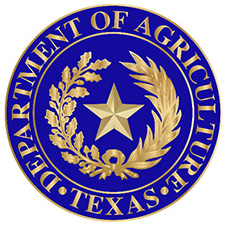Danger signs for 2023 farm bill in partisan rancor on Capitol Hill
Congress traditionally enacts the farm policy bills covering the gamut from crop subsidies to food stamps at the urging of a coalition of farm, conservation and anti-hunger groups. A former USDA official said the 2023 farm bill could be in peril if there is a repetition of the political turbulence that temporarily derailed the omnibus legislation twice in the last eight years.
Agriculture can be climate leader with ‘build back’ funding, says Vilsack
The farm sector would gain $27 billion for climate mitigation, including payments for planting cover crops, from the social welfare and climate change bill passed by the House, said Agriculture Secretary Tom Vilsack. “Agriculture can lead the way in the fight on climate with climate-smart agriculture and forestry practices that sequester carbon, reduce emissions and create new and better market opportunities for producers.”
Today’s Quick Hits
Tongass roadless rule: The USDA will accept public comment on a proposed rule, to be published this week, that would restore protections against road building and logging in more than 9 million acres of the Tongass National Forest in Alaska. (USDA)
Senate confirms Sams: By unanimous vote, the Senate confirmed Charles Sams as the first Native American to serve as director of the National Park Service. (NBC News)
Black farmer initiative: Smithfield Foods said the first family farmers have joined a contract grower program for Black and other minority farmers that is part of a $15 million “Unity and Action” commitment by the largest U.S. pork processor. (Smithfield)
Giant sequoia losses: Nearly 20 percent of the world’s sequoia trees died in three wildfires in the southern Sierra Nevada in the past 14 months, said the National Park Service. (Los Angeles Times)
Farm laws repealed: After a year of protests by farmers, India’s Prime Minister Narendra Modi announced the repeal of three laws that had rolled back farm subsidies and price regulation of crops but were criticized as giving corporations the upper hand in setting sales prices. (Guardian)
On The Calendar
Monday
USDA releases monthly Cold Storage report, 3 p.m. ET.
USDA releases weekly Crop Progress report, 4 p.m. ET.
Tuesday
USDA releases monthly Food Price Outlook, 9 a.m. ET. At present, food prices are forecast to rise by a higher-than-usual 3.5 percent this year, driven by persistently elevated meat prices, but then slow to 2.5 percent in 2022. The 20-year average is a 2.4 percent annual increase.
USDA releases quarterly Outlook for U.S. Agricultural Trade, 3 p.m. ET. Exports were a record $172.2 billion in the fiscal year ending Sept. 30 and currently are forecast at $177.5 billion in the current fiscal year. The previous record was $156.9 billion in fiscal 2014.
Wednesday
USDA releases semi-annual Farm Labor report, 3 p.m. ET.
Thursday
Thanksgiving Day, a holiday that began during colonial times as a harvest feast and became an annual national holiday by proclamation of President Lincoln in 1863 during the Civil War, “to heal the wounds of the nation” and commend the care of “widows, orphans, mourners or sufferers in the lamentable civil strife.” Lincoln chose the final Thursday of November. President Franklin Roosevelt advanced it by a week in 1939 to spur the economy during the Great Depression. Congress passed a law in 1941 setting Thanksgiving on the fourth Thursday of November. The American celebration of Thanksgiving as a response to the fall harvest “falls under a category of festivals that spans cultures, continents and millennia,” says History.com. “Historians have noted that Native Americans had a rich tradition of commemorating the fall harvest with feasting and merrymaking long before Europeans set foot on their shores.”











